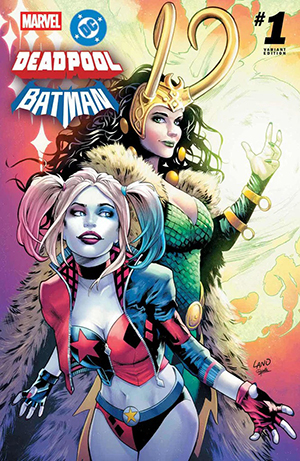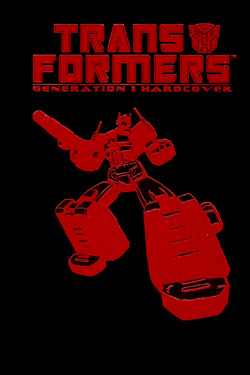|
 |
WAITING
FOR TOMMY: ADAM FORTIER
BY
RICHARD JOHNSTON
Adam
Fortier is a name I kept seeing cropping up. On press releases
from new and vibrant comic companies, his name seemed a common
thread. How could one man work for so many people? And how come
everything he seemed to touch, turned to gold?
Clearly
this was some fellow in his late forties or fifties, maybe
a publishing of licensing consultant who'd worked in Hollywood
for decades with the right contacts and a relationship with
a major cocaine dealer on the West Coast.
So colour
me surprised when I met the twenty-something fellow in Chicago
(after I was flown out by the very generous Dynamic Forces
people) with little more than a couple of comics in one hand
and a beer in the other. Clearly something was up. how did
such a fellow end up in the right place at the right time?
Turns out it was a mixture of insight, hard graft and just
an eensy weensy bit of luck.
RICHARD
JOHNSTON: Adam - you are the nexus of licensed comic book
realities aren't you? Dreamwave's Transformers , Udon's Street
Fighter, Devil's Due's GI Joe, Roaring Studio's Dragonlance..
Who are you, where have you come from, and just how have you
become one of comics more interesting movers and shakers?
ADAM FORTIER: I started my comics career in retail
at the young age of 15. I hung around my comic shop until
they finally gave me a job there, working for comics. I was
able to get enough time together to be able to afford an X-Men
94 in beautiful shape, the most expensive comic book I owned
at that date. Moving to paying wages was easy as it was the
comic book boom, and I quickly became a commissioned salesperson
for the comic book store, selling rare comic books , as well
as assistant manager. After the boom came the bust, and the
industry wasn't a lot of fun to work in at that point. I had
an attack of conscience selling sub par product at inflated
prices, and left for supposedly greener pastures. I'll keep
the time between comic book careers brief. I went to University
for Mathematics (and Economics, Computers, and Physics, changing
each year), working at the same time as a programmer for Xerox.
I left University and started a multimedia company with some
friends, moved from Multimedia to computer animation, and
that's where I met Dreamwave. I was looking at doing some
work to get interest in an animated movie together, and the
idea of a Transformers movie came up. After contacting Hasbro,
and finding out that the rights were pretty much tied up already,
it was a small jump from a movie to a comic book. As I had
already talked to Hasbro before, it was up to me to figure
out what was entailed in getting a license for a comic book.
After months of pitching, we were given the go ahead to publish
Transformers, with the caveat that we were to publish RIGHT
AWAY! Just before being given the license we had decided to
leave Image comics and publish on our own (none of us having
any idea what's entailed in self publishing), so we had a
lot of figuring out to do. It was left to me to take us from
completed comic book to printing, distribution, and marketing.
Needless to say things worked out, and we started a successful
foray into the publishing world of comic books. Early in 2003
I stopped working with Dreamwave , and started looking for
other opportunities. Since then I've done work with Devils
Due, UDON, and for the past six months have been working with
IDW Publishing.
Since
working with Dreamwave it's been my job to figure out how
something gets done, and if there's interest in publishing
a comic book, distributing somewhere, specific artists, or
even just doing a store signing , it was my job to find out
who to talk to , and contact them. It's all about who you
know, and I've been able to know a lot of people. As for what
it is that I do, I don't think that anyone really knows, even
me. I do marketing, editing, co-ordinate printing, and a dozen
other things that are pretty bloody mundane. Still, these
things need to get done if you want to publish a comic book
successfully.
RICHARD:
What are the bugger mistakes you've seen others make in publishing,
and how have you avoided them?
ADAM: A very simple mistake that seems to be made all
the time is not thinking about the purchasing philosophy of
the customer. When we published Transformers #1 there was
a reason it was the number of covers it was, and that was
to give everything to the customer without flooding them.
Often I see comics published with little or no regard to the
customers that are buying them. Because I worked in retail
and have been a collector myself for a long time, I'm able
to think about this in terms of the customer. Also, there's
the "party line" mistake that happens a great deal. That's
when you tell the customers something in order to save face,
and they already know the truth. Some of the excuses for certain
things that have happened in the industry are appalling!
Tell
the truth, admit your mistake, and move on with life. I think
that's much better when dealing with the public.
Pages:
1 | 2
| 3 | 4
Continued Here...
|
 |







